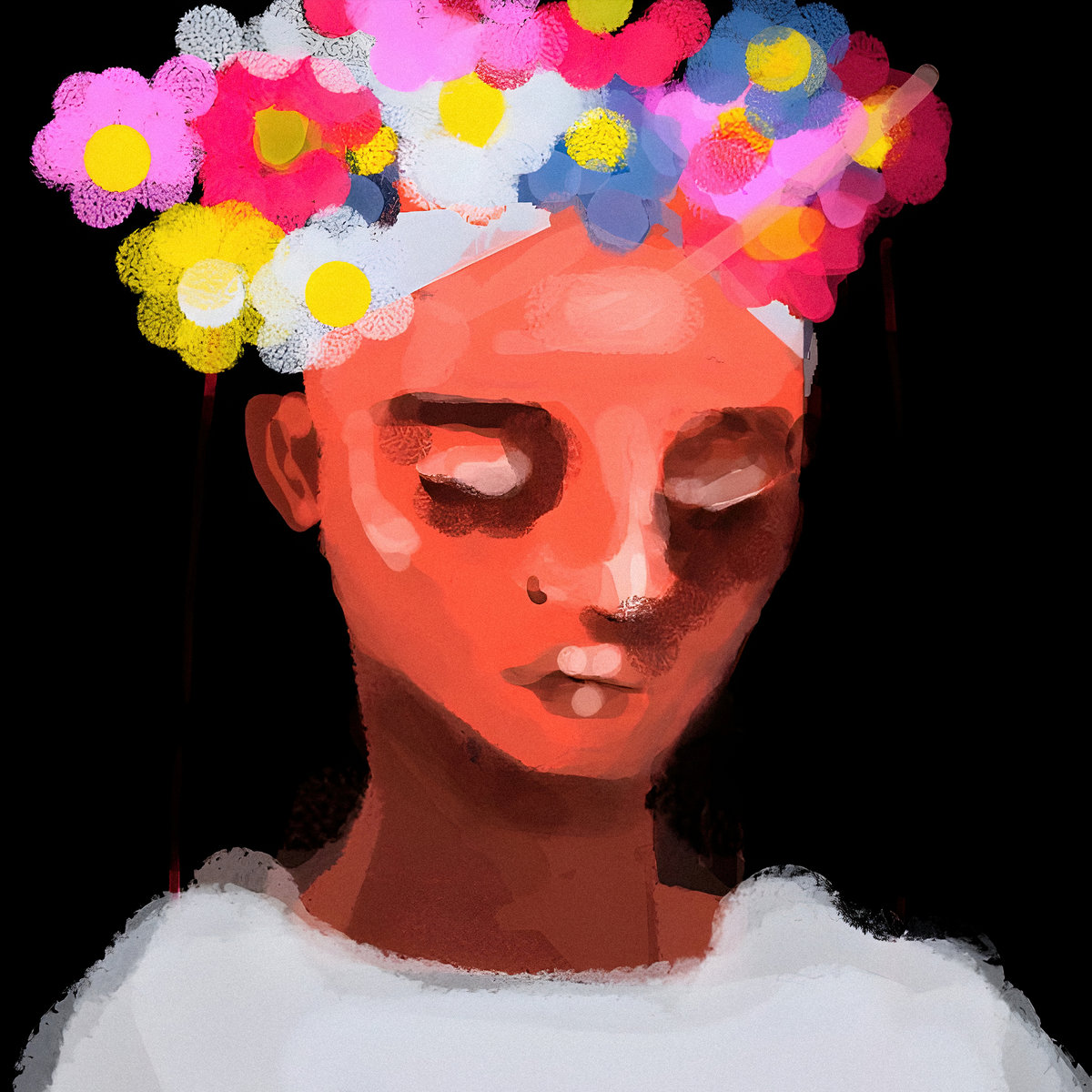
Bruno Berle – No Reino Dos Afetos 2 (Far Out Recordings)
Bruno Berle, the young songwriter and poet originally hailing from Maceió, the capital of Brazil’s Alagoas state, crafts songs that are simple, direct, and full of tender nuance. With his first album No Reino Dos Afetos (which translates to „In the Realm of Affections” and was released in 2022), Berle firmly established himself as a unique and important voice in the burgeoning scene of new Brazilian artists making a global impact, including peers like Ana Frango Elétrico, Tim Bernardes, Bala Desejo, Sessa and more. Now back with his second album, No Reino Dos Afetos 2, he stretches that further.
Bruno Berle’s music lives between two worlds – a traditional Brazilian folk talent steeped in history, and a contemporary, dreamy electronic pop; the result is songwriting that’s genre-bending, intentional, iconoclastic and consuming, spacious and sinewy and singular, a striking reflection of its composer while leaving space for the listener to settle in. The album follows Bruno’s relocation to São Paulo, and the songs are a reflection of his past and present. A rebuke of former categorizations of his work in Brazilian music scenes, and an idea of where his music can move, unfettered.
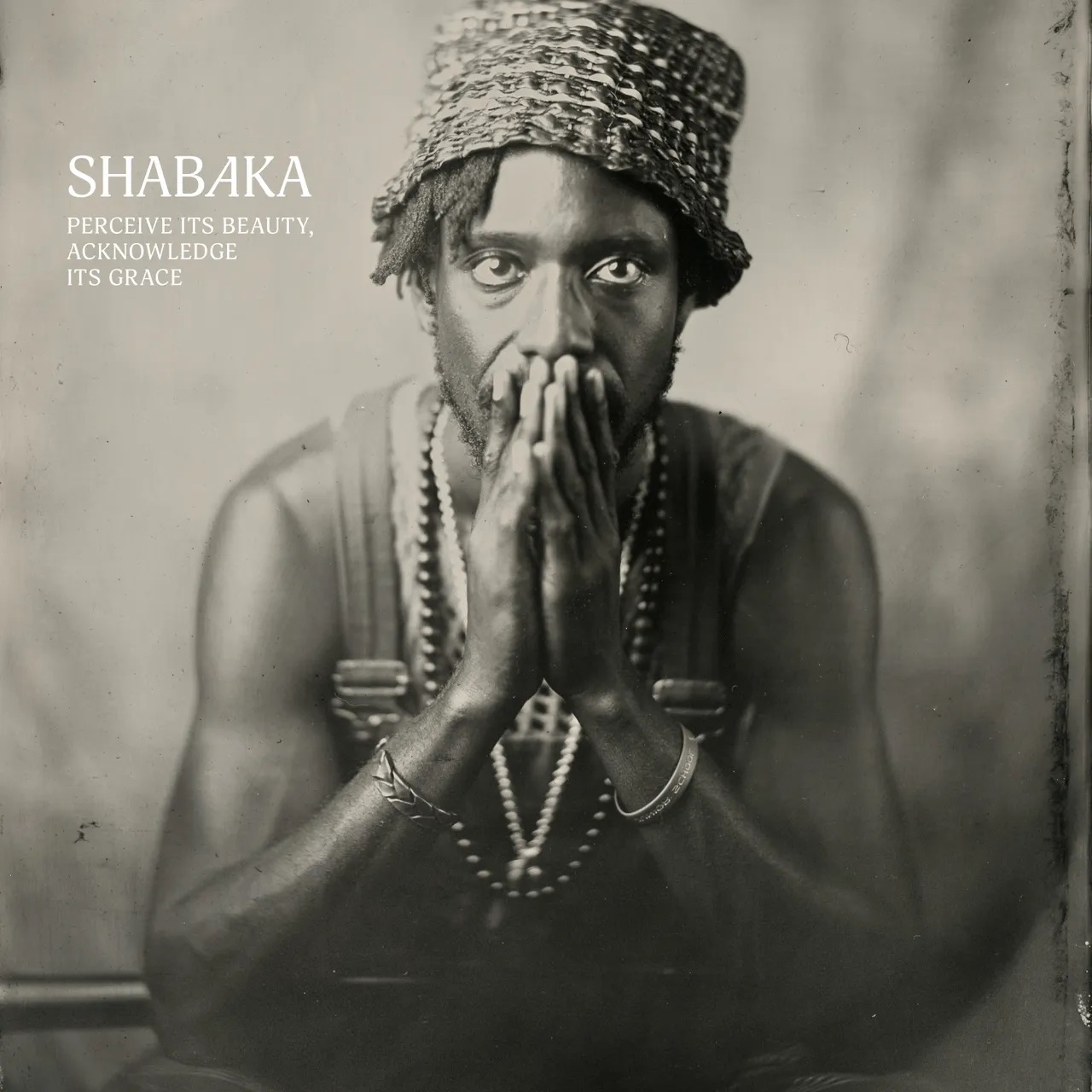
Shabaka – Perceive its Beauty, acknowledge its Grace (Impulse)
Shabaka Hutchings recently announced that he would give his bands Sons Of Kemet, Shabaka And The Ancestors and The Comet Is Coming, as well as his saxophone, a break for an unspecified period of time. His first solo album is a moving suite of primarily instrumental, meditative music that features Shabaka playing a variety of flutes. He invited artists such as Andre 3000, Lianne La Havas, Moses Sumney, Floating Points and others as guests. Shabaka plays Flutes, Clarinet and Shakuhachi.

Jards Macalé – Jards Macalé (Week-End Records)
Jards Macalé’s biography is a testament to the electrifying energy of music and the unwavering spirit of artistic rebellion. Macalé has remained true to his vision, unapologetically embracing the unconventional and challenging the status quo. His music, a conduit of emotion and a mirror to society, continues to weave a sonic tapestry that resonates with the souls of listeners.
In 2022, Macalé celebrated the momentous 50th anniversary of his debut solo album, a groundbreaking masterpiece released by Philips in 1972. This iconic record gifted us timeless tracks such as “Vapor Barato”, “Mal Secreto”, “Farinha do Desprezo”, “Revendo Amigos”, and “Hotel das Estrelas”. Its sheer brilliance united the realms of Brazilian music, infusing samba and bossa nova with the fiery essence of rock, classical harmonies, and the improvisational spirit of jazz. As the years passed, a new generation of musicians and fans discovered this gem, fueling its resurgent popularity and inspiring fresh collaborations.
Last year, Jards Macalé assembled a formidable new band, igniting stages across Brazil with a tour that now sets its sights on Europe. Together with Gui Held on guitar, the Paulo Emmery on bass, and Thomas Harres on drums, Macalé conjures an exhilarating homage to his illustrious body of work. This live performance embodies the untamed spirit and boundless musical freedom that define this visionary artist, transporting audiences to a realm where the past intertwines with the present in a breathtaking display of artistic prowess.
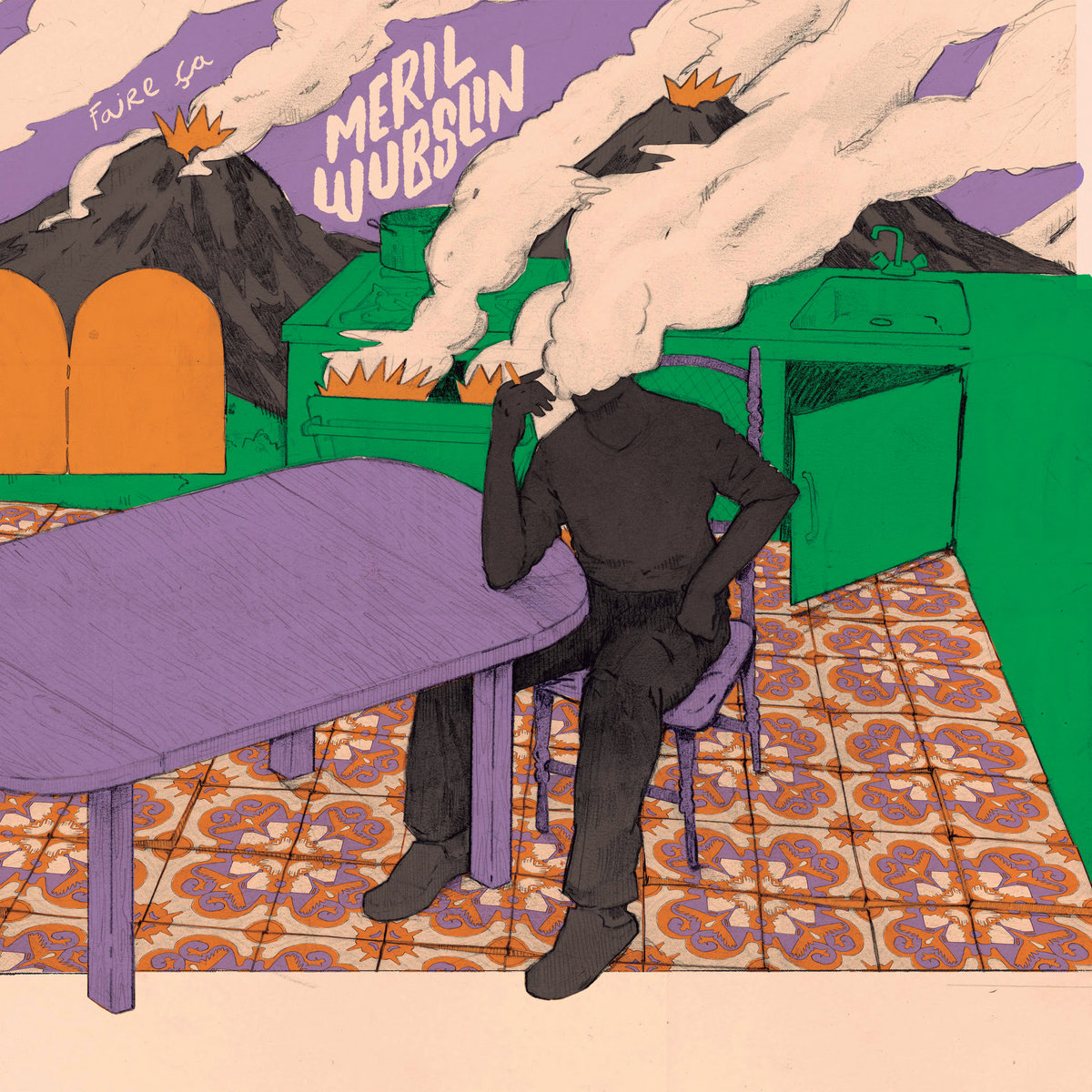
Meril Wubslin – Faire Ça (Bongo Joe)
Embarking on an unprecedented musical odyssey, Meril Wubslin unveils their highly anticipated fourth album, „Faire Ça,“ a sonic journey recorded in Kwake Bass‘ South London studio. This nine-track masterpiece defies genre boundaries, seamlessly merging blues, folk, post-rock, and dub, resulting in a distinctive and unparalleled palette born from all-night sessions and a shared love for avant-garde composers.
Collaborating with Kwake Bass, celebrated for groundbreaking work with Sampha and Kae Tempest, the trio fearlessly navigates unfamiliar soundscapes. From the intimate blues and folk-inspired „Grands Espaces“ to the experimental fusion of „La Main,“ and the electro-blues percussion of „Famille Phare,“ „Faire Ça“ showcases the band’s ability to craft a bold new shade that transcends its musical ingredients.
Breaking free from norms, „Faire Ça“ promises enduring musical rewards and solidifies the band’s dedication to continuous evolution and exploration beyond the confines of conventional expectations.

Jlin – Akoma (Planet Mu)
Jlin’s detailed and meticulous exploration of rhythm’s inner and outer reaches has made her one of the most distinctive and recognisable voices within both the electronic and new music worlds. Her compositions are consistently appealing and have an accessibility to them, yet often defy expectations. She exists within her own locus solus – no matter the collaborator, no matter where sounds ultimately lead her. Whatever the situation – from composing the Pulitzer Prize shortlisted ‘Perspective’ for Third Coast Percussion, to ‘Godmother’ her AI-powered collaboration with Holly Herndon, Jlin always expresses her outlook to the fullest.
Her new album ‘Akoma’ sets a new benchmark in her personal road map, not only since the album features guest appearances from Björk, Philip Glass and Kronos Quartet but for her continued sonic persistence and resistance. Jlin does what Jlin does and it’s beloved across genres, across scenes and across generations. ‘Akoma’ is a new entry point into her sound and a new approach for both those who have been following diligently and those who are just now entering her world.

Su Yono – Wellen (Trikont)
Su Yono ist ein Trio aus München. Nun präsentieren sie ihr Debütalbum „Wellen“ auf Trikont.
Hier schweben hypnotische Harmonien, Avant-Folk und Indie nebeneinander gedankenverloren durch ihren ganz eigenen Pop Kosmos.
Pola Dobler (Witches of Westend), Marcus Grassl (Aloa Input) und Chris Hofbauer (Micro Circus) sind Su Yono.
Synths, Bass, Drums und Vox bilden live das musikalische Konstrukt. Sie lassen sich von Outsider Pop, Electronica, Psychedelia, Kraut & No-Wave inspirieren und entlehnen Elemente aus diesen Genres, um die losen Stränge dieser Fäden zu einem mystischen, dunkelgrün geflügelten Umhang zu verweben der in blauem Honig tropft.

Cleo Sol – Heaven (Forever Living Originals)
Unter den besten 50 Alben von 2023 bei NPR Music.
Erhältlich auf CD und LP.
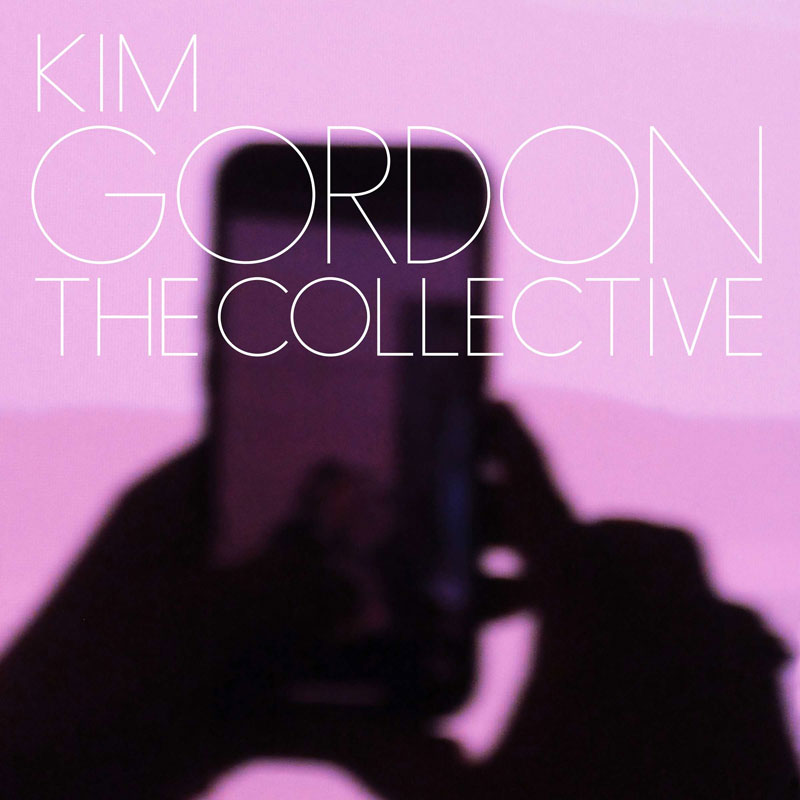
Kim Gordon – The Collective (Matador Records)
Legendary musician and multi-disciplinary artist Kim Gordon returns with her second solo album, The Collective, which will be released March 8th on Matador. Recorded in her native Los Angeles, The Collective follows Gordon’s 2019 full-length debut No Home Record and continues her collaboration with producer Justin Raisen (Lil Yachty, John Cale, Yeah Yeah Yeahs, Charli XCX, Yves Tumor), with additional production from Anthony Paul Lopez. The album advances their joint world building, with Raisin’s damaged, blown out dub and trap constructions playing the foil to Gordon’s intuitive word collages and hooky mantras, which conjure communication, commercial sublimation and sensory overload.
“On this record, I wanted to express the absolute craziness I feel around me right now,” says Gordon. “This is a moment when nobody really knows what truth is, when facts don’t necessarily sway people, when everyone has their own side, creating a general sense of paranoia. To soothe, to dream, escape with drugs, TV shows, shopping, the internet, everything is easy, smooth, convenient, branded. It made me want to disrupt, to follow something unknown, maybe even to fail.”
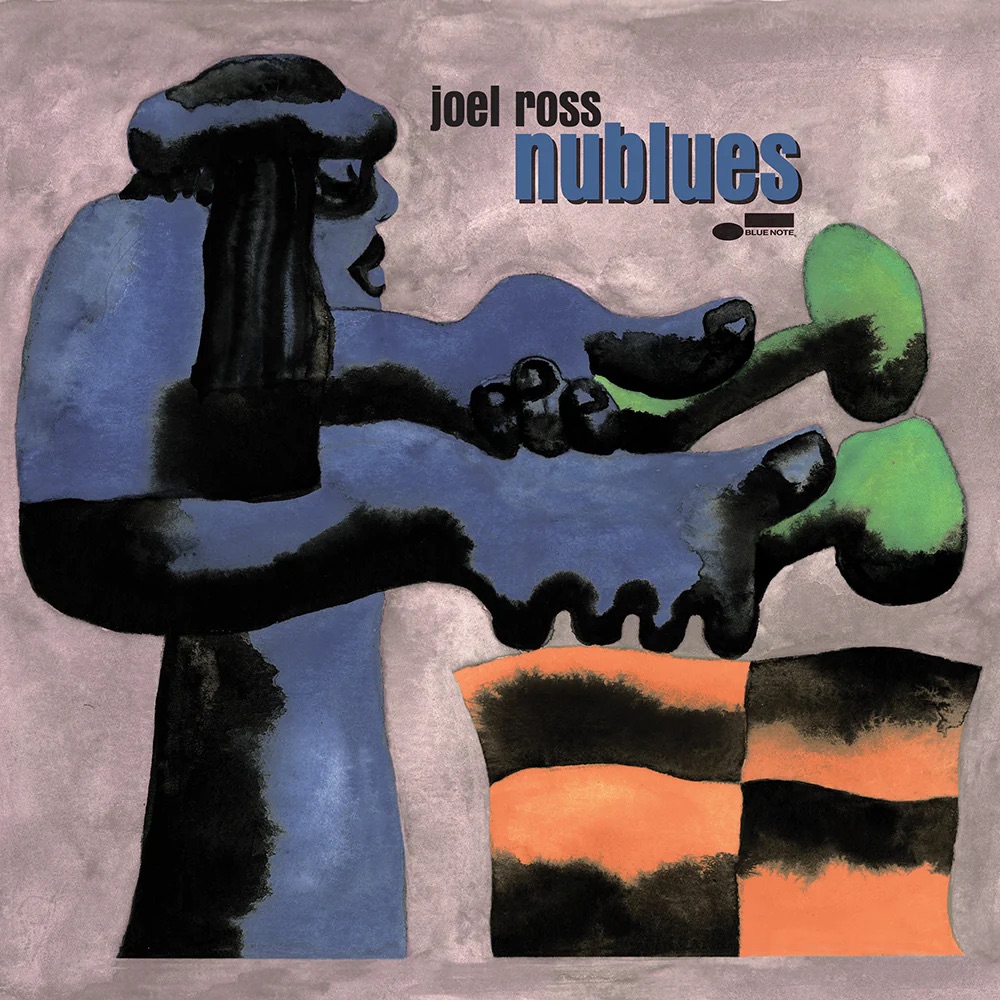
Joel Ross – nublues (Blue Note)
Acclaimed vibraphonist Joel Ross returns with his remarkable fourth Blue Note release nublues, an album of blues and ballads as refracted through the prism of one of the most creative modern jazz groups of our time. Communication is a key element of the album; both the communication between the musicians and the listener with an emphasis on singable melodies, as well as the profound and intuitive musical conversation that occurs within this tight-knit band featuring Immanuel Wilkins on alto saxophone, Jeremy Corren on piano, Kanoa Mendenhall on bass, Jeremy Dutton on drums, and special guest Gabrielle Garo on flute. The 10 tracks here include 7 new Ross originals as well as pieces by John Coltrane (“equinox” & “central park west”) and Thelonious Monk (“evidence”) many of which are performed as spontaneous suites with the band moving seamlessly across the blues-imbued musical terrain.

Emahoy Tsege Mariam Gebru – Souvenirs (Mississippi Records)
The first vocal album by beloved Ethiopian nun, composer, and pianist Emahoy Tsege Mariam Gebru – profound and deeply moving home cassette recordings made amidst political upheaval and turmoil.
These are songs of wisdom, loss, mourning, and exile, sung directly into a boombox and accompanied by Emahoy’s unmistakable piano. Though written and recorded while still living at her family’s home in Addis Ababa, Emahoy sings of the heartache of leaving her beloved Ethiopia, a reflection on the 1974 revolution and ensuing Red Terror in her homeland, and a presentiment of her future exile in Jerusalem.
In the 21st century, Emahoy has become known worldwide for her utterly unique melodic and rhythmic style. Commonly misinterpreted as “jazzy” or “honky tonk,” Emahoy’s music actually comes from a deep engagement with the Western classical tradition, mixed with her background in Ethiopian traditional and Orthodox music. These songs, recorded between 1977-1985, are different from anything previously released by the artist. Rich with the sound of birds outside the window, the creak of the piano bench, the thump of Emahoy’s finger on the record button, they create a sense of place, of being near the artist while she records. Emahoy’s lyrics, sung in Amharic, are poetic and heavy with the weight of exile. “When I looked out / past the clouds / I couldn’t see my country’s sky / Have I really gone so far?” she asks in “Is It Sunny or Cloudy in the Land You Live?” Her vocals are delicate and heartfelt, tracing the melodic contours of her piano on songs like “Where Is the Highway of Thought?”

Ippio Payo – Talking Birds (Echokammer)
Ippio Payo’s music matures until it emerges its way into the light of day all by itself. Like a chick that, as soon as the time is right, after days and weeks of maturing in the egg, pecks its way through the fragile shell into the light under its own steam and timidly unfolds for the first time what will one day help it to soar. Some ideas then become swallows, which make the summer for people who listen carefully, and others become condors, whose mighty wings sound like the mountain ranges of the Andes. Ippio Payo’s music feels its way forward, like fledglings taking flight: sometimes it flicks hooks like a hummingbird, sometimes it sails majestically like an albatross. The songs cross every border – migratory birds that fly over the Himalayas and navigate biotopes over thousands of kilometers with pinpoint accuracy – and find their listeners in Croatia, Spain, France, and Australia. They populate every habitat – from the proverbial desert island to the harsh metropolis, from the Arctic to mythology: Eagle, Sparrow, Phoenix, Griffin, Roc, Peng, Garuda. Birds are considered to be messengers between humans and the spiritual world – in some bars you can hear that too. Otherwise, Ippio Payo, like the bird, stands for freedom itself: because Ippio Payo are always just themselves at every moment. The music is free – let it fly.
„Birds were like dinosaurs‘ better selves. They had short lives and long summers. We all should be so lucky as to leave behind such heirs.“
(Jonathan Franzen, „The Discomfort Zone: A Personal History”, 2010)

Danny Brown – Quaranta (Warp)
Part of this comes with age. “Quaranta” means “forty” in Italian, marking pivotal moments and epiphanies in the years since his breakout record XXX. It’s also where the word “quarantine” originates, not only referring to the decade defining lockdowns the album was written in, but to a deep sense of isolation and self reflection that colours Danny’s storytelling. As the album’s very first line says, “This rap shit done saved my life and fucked it up at the same time”: there’s no begging for pity here, rather Danny is telling all, with ‘Maggot Brain’-esque shreds framing his bare, wisened voice.
Danny’s vanguard status as an artist allows him to school the youngins of the rap game while unpacking his own downfalls. In that way, Quaranta becomes a case study of the rapper, reckoning with the realities of his dream career. ‘Y.B.P.’ is as much an admonishment of destitute living situations as it is a celebration of Detroit’s ingenuity, leading into an abstract thesis on gentrification in ‘Jenn’s Terrific Vacation’, where musical structures are knocked down and rebuilt just as quickly as the architectural ones are, while freezing tones depict stagnation in the midst of immense change.

Terry Adams – Terrible (Omnivore)
The NRBQ founder’s first solo album returns with four bonus tracks.
Terry Adams’ first solo album Terrible is exactly the opposite—it’s a thing of beauty!
In 1995, at the request of New World Records, Terry wrote and recorded an all-original jazz album. The NRBQ founder/pianist invited friends Marshall Allen and other Sun Ra members, Roswell Rudd (Archie Shepp and Carla Bley), the rhythm section of Greg Cohen and Bobby Previte that he met working on Robert Altman’s Short Cuts movie, as well as the members of NRBQ.
On this terribly impressive Terrible reissue, the 12 originals, now augmented by four previously unissued bonus tracks, range from beautiful ballads to swinging romps, all expertly and brilliantly played. Adams and company freely explore his compositions’ whims, ideas and notions, and express them utilizing a unique and varied palette of instrumentation.
Thankfully, this solo outing wasn’t a one-time occurance. Terrible set the table for other terribly wonderful solo projects to follow, but it took nearly 30 years for that album to return. Now sporting new cover art and carefully remastered audio with bonus tracks on CD, Digital and for the first time, a 2-LP set, Terrible has never looked or sounded better.

KRATZEN – KRATZEN zwei (Krautwave)
Etwas nicht zu tun, ist ein zentrales Merkmal von Kratzen. Das Wesen von Kratzen besteht aus der Limitation.
Das Debütalbum von 2020 zeigte bereits, was Kratzen vorhat. Nun also KRATZEN zwei, das die Sound-Idee der Band vollkommen klarmacht. Da ist das zumeist blechlose Schlagzeug, da ist der drückende Bass, da sind die geschichteten Gitarren, untermauert von einer durchlaufenden Orgel.
Kratzen glaubt an die Energie, die entsteht, wenn sich plötzlich kleine Dinge verändern. Repetitiv – motorisch – stoisch – reduziert – Kratzen verbindet Krautrock und New Wave.und nennt es Krautwave.

Die Quittung – Einfrieren (Staatsakt)
Das ist nicht die Reinkarnation von Ton Steine Scherben, respektive Rio Reiser. Hat aber was davon. Hört mal rein!
In Zeiten, in denen alle Mainstream sind, ist es nicht leicht ein Underground-Musiker zu sein. Vor allem, wenn man davon leben wollen muss.
Der Leipziger Musiker Josen Bach ist so einer. Seit Jahren erfolgreich unter dem Radar!
Er verdient seine Brötchen als Schlagzeuger, als Theatermusiker und jetzt neu: Als Bandleader seiner eigenen Band DIE QUITTUNG.
„Einfrieren“, so lautet der Titel des am 24.11. erscheinenden Albums, ist bereits das zweite Album von DIE QUITTUNG, allerdings das erste auf dem Berliner Label staatsakt.
Die Produktion für „Einfrieren“ ging während der Pandemie los und ist nun endlich pfannenfertig gemischt und gemastert. Selbstverständlich wird sein neues Label nun alles dafür tun, DIE QUITTUNG so breit wie möglich im Mainstream zu etablieren! Bald ist es vorbei mit dem Untergrundlegendenstatus. Nur noch mit Sonnenbrille zum Bäcker.

Pozi – Smiling Pools (PRAH)
Pozi are the sort of band to tackle the creative cycle of deconstruction and rebuilding with relish. Second album ‚Smiling Pools‘ is testament to that. An LP that sees them at their most expansive yet, it follows a gradual swelling of their sound across two EPs preceding the urgent, self-enforced minimalism of their debut album PZ1 in 2019.
The trio of Toby Burroughs, Rosa Brook, and Tom Jones quickly established something of a foundational template on that first album: a hyper-skeletal sound palette of drums, bass and three distinct vocals disrupted by Rosa’s churning violins, from which emerged biting social observations and political angst.
These hallmarks haven’t fully gone away over time, but from that urgent energy there has emerged greater confidence and a playful desire to push further out from the loose genre tag of post-punk they were initially saddled with.
“It’s not our goal to totally embrace and restrict ourselves within a genre.” Tom says. “I feel that the tracks on Smiling Pools demonstrate that we’re taking our music to a different place and we want to bring the listener along on that journey.”

The Sorcerers – The Sorcerers (ATA)
„Who’s this? The Sorcerers? It’s cool! This is great. Give me the cd man!“ – Mulatu Astatke
Taking influences from Ethiopiques ethiojazz as well as the soundtracks to the European horror films of the 60s and 70s, The Sorcerers seamlessly blend these disparate elements into one cohesive package. Based in ATA Records‘ home of Leeds, The Sorcerers are made up of the cream of the city’s jazz and world scene. Forming the backbone of the ATA Records house band they incorporate bass clarinets, flutes, and vibraphone alongside bass, guitar organ and drums, providing Ellingtonian textures on top of a solid rhythmic foundation.
After featuring on the „Funk, Soul & Afro rarities: An Introduction to ATA Records“ compilation from Here and Now records last year, they set to work recording a full length LP at the studios of record label ATA Records.
„The Sorcerers are the Ethiopiques of the modern age“
– Jazzman Gerald.

Jon Savage’s Ambient 90s (CTR)
Following on from 2012’s acclaimed “Fame” Post-Punk , 2015’s „Perfect Motion“ Psychedelic-Baggy 1988-93 compilations & 2020’s “Do You have The Force ?” Electronic 1978-82, all critically acclaimed. Jon Savage decided to focus upon Electronic music from the 1990s & has compiled an album that trips through a futuristic & musically fertile era highlighting both lesser-known gems & genre-defining cuts ..
” This music is a new way of looking at the world, a new language” (Jon Savage -Jockey Slut Magazine 1992 )
This compilation is selected and curated by renowned cultural commentator, writer and film-maker Jon Savage. Amongst many highly revered projects Jon has produced the definitive work on Punk Rock in “England’s Dreaming” and the documentary & book “Teenage” The Creation of Youth, 1875 – 1945. He is also the biographer of Joy Division & author of the top 10 Sunday Times best seller „This Searing Light, The Sun & Everything Else“ The Oral History Of Joy Division in 2019.
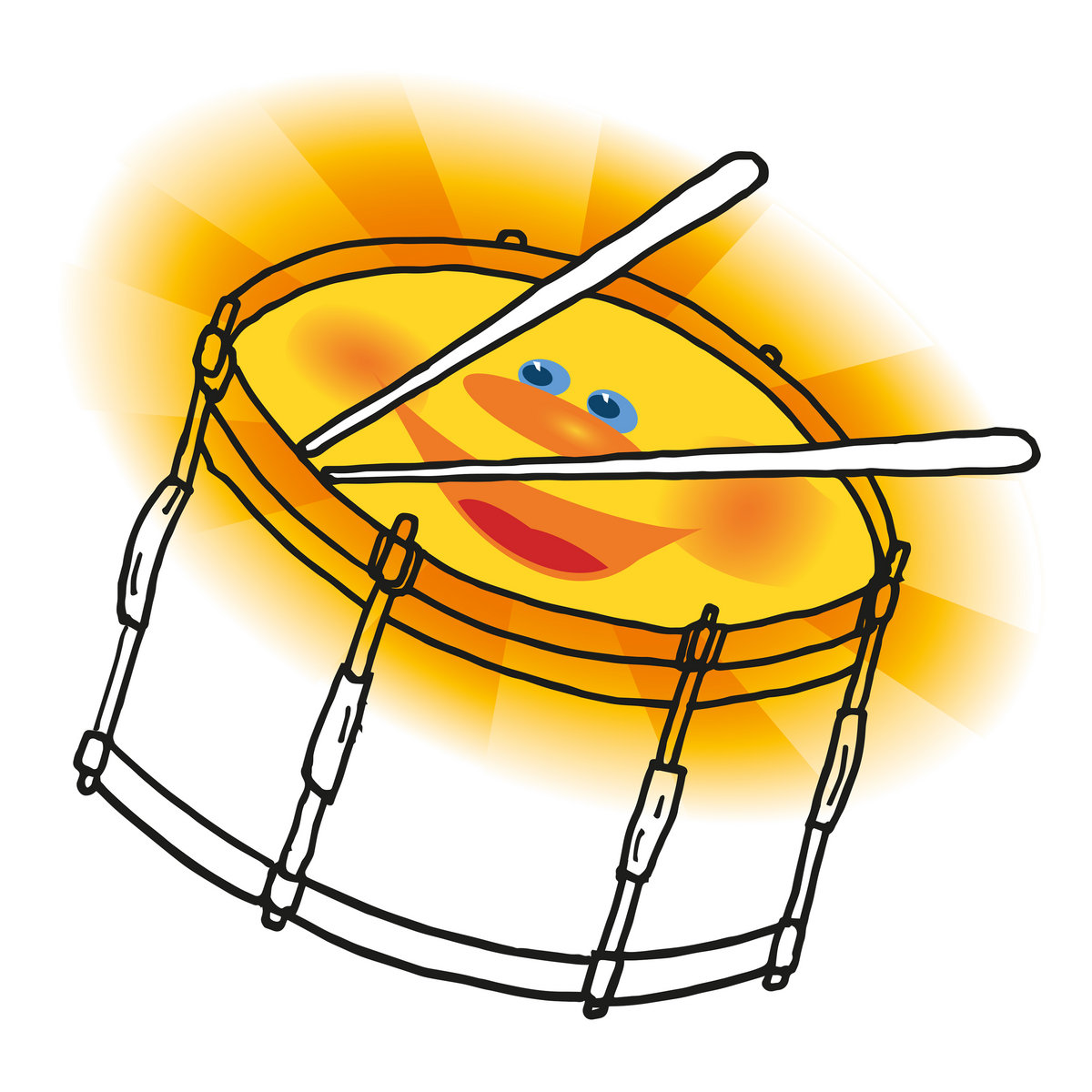
The Düsseldort Düsterboys – Trommel EP (Staatsakt)
Die neue EP der Essener inklusive Single-Hit Sommer.
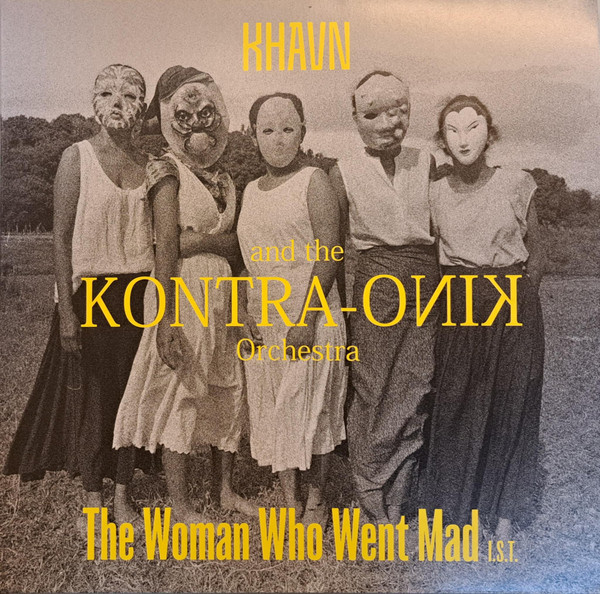
Khavn and the Kontra-Kino Orchestra – The Woman who went mad (I.S.T.) (Rheinschallplatten)
This is his new album together with the Kino-Kontra Orchestra that came out together with the same-titled film about his works.

Moritz von Oswald – Silencio (Tresor)
What are the differences and similarities between human and artificial sound, between oscillations generated by vocal cords and synthesizer voices, voltage amplified by speakers? On Silencio, his latest album for Tresor Records, Moritz von Oswald works with a 16-voice choir to explore this concept.
Drawing from the ensemble works of long-standing inspirations Edgard Varèse, György Ligeti and Iannis Xenakis, von Oswald and Vocalconsort Berlin delve into the space between sounds, creating a deeply textured collection that shifts between light & ethereal and dark & dissonant.
As masterfully demonstrated in the early work of von Oswald and Mark Ernestus’ influential Basic Channel project, repetition and reduction are key elements here, much in the tradition of techno and minimalism. The vast dynamism of the human voice adds to the profound weight of electronics while offering up a rhythmic source and sonic noise palette unexplored in von Oswald’s repertoire. In Silencio, von Oswald dredges a dank murk, pulling clouds over a distant pulse. It hangs, ready to take on new forms.
The compositions were written in von Oswald’s Berlin studio on classic synthesizers, such as the EMS VCS3 & AKS, Prophet V, Oberheim 4-Voice and the Moog Model 15. These abstract recordings were transcribed to sheet music for choir by Berlin-based Finnish composer and pianist, Jarkko Riihimäki and performed by Vocalconsort Berlin in Ölberg church in the city’s Kreuzberg district, only few metres down the road from where Dubplates & Mastering and Hard Wax opened their doors for music enthusiasts for many years so long.
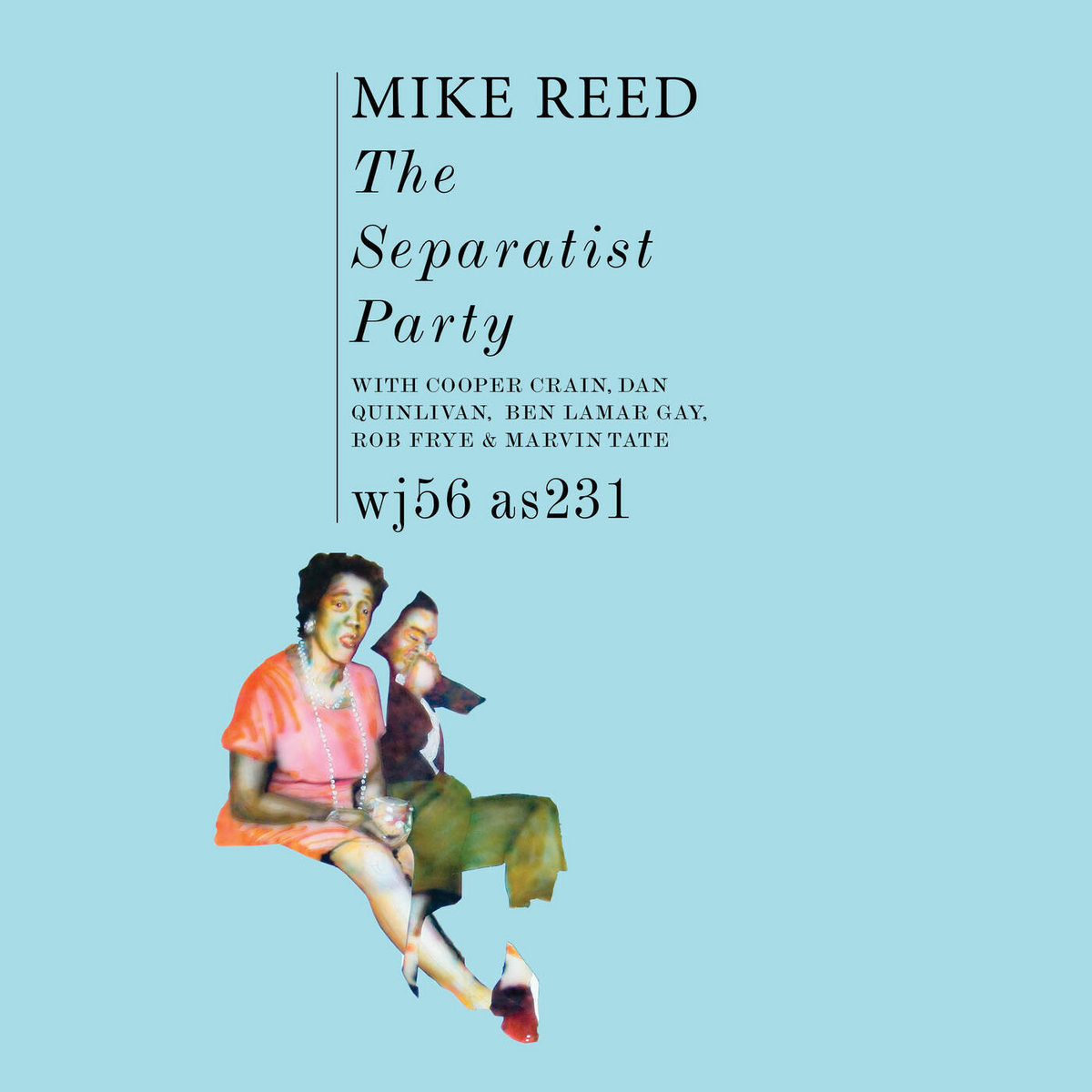
Mike Reed – The Separatist Party (We Jazz)
Der Chicagoer Schlagzeuger, Bandleader und Komponist Mike Reed präsentiert sein neues Werk „The Separatist Party“, das am 27. Oktober 2023 gemeinsam von We Jazz Records und Astral Spirits veröffentlicht wird. Auf dem Album sind Ben LaMar Gay, Bitchin Bajas und Marvin Tate zu hören, und es wurde als Soundtrack zu dem Nachrichten-Essay „The Lonely Death of George Bell“ von N.R. Kleinfield geschrieben und aufgeführt.
Schon lange vor der Covid-19-Pandemie hatte Mike Reed über das Thema Isolation nachgedacht, verfolgt von einer Geschichte aus dem Jahr 2015 in der New York Times über den Tod eines Bewohners namens George Bell. Er war ein Hamsterer, der zu Hause verstarb und dessen Leiche fast eine Woche lang unentdeckt blieb. Die Behörden konnten seine Angehörigen nicht ausfindig machen und hatten Mühe, die Teile seines Lebens zusammenzusetzen, wie so viele andere Menschen, deren Existenz geisterhaft wird und die selbst in einer so belebten Stadt wie New York – einer Art inoffizieller Quarantäne – die Tage völlig allein verbringen.
Nach einigen Jahren, in denen persönliche Interaktionen eingeschränkt, wenn nicht gar verboten waren, versammelte Reed Anfang Januar 2022 eine Gruppe von Musikern, um diesen Gedanken der erzwungenen Abgeschiedenheit einen Klang zu geben. Er brachte einige der kreativsten Köpfe der experimentellen und improvisierten Musikszene Chicagos zusammen, den Kornettisten Ben LaMar Gay und den Dichter und Spoken-Word-Künstler Marvin Tate – beide arbeiteten an seinem Projekt Flesh and Bone aus dem Jahr 2017 mit und schlossen sich ihm sporadisch in einem improvisierenden Trio an – zusammen mit den Mitgliedern von Bitchin Bajas (den Multiinstrumentalisten Rob Frye, Cooper Crain und Dan Quinlivan). Er nannte die neue Gruppe Separatist Party, ein Name, den er gelegentlich für Ad-hoc-Live-Auftritte verwendet hatte, und auch ein Titel für ein altes Flesh-and-Bone-Stück. Er schien perfekt in den Kontext zu passen und spiegelte die Einzelgänger-Persönlichkeit wider, die alle sechs Musiker zeitweise ausstrahlten.

Searchlight Moonbeam (Efficient Space)
Searchlight Moonbeam ist die neue erzählerische Zusammenstellung von Time Is Away (Jack Rollo und Elaine Tierney), deren gleichnamige monatliche NTS-Radioshows ihnen eine begeisterte Anhängerschaft eingebracht haben. Es folgt auf „Ballads“ des in London lebenden Duos, ein bemerkenswertes Werk, das 2022 auf A Colourful Storm veröffentlicht wurde.
Searchlight Moonbeam ist eine herbstliche Traumlandschaft, intim und abendlich, nachdenklich und unentschlossen. Eine imaginäre Gemeinschaft, in der Unterschiede verschwinden und Resonanzen auftauchen – zwischen Maher Shalal Hash Baz Partner Kasumi Trio, dem taiwanesischen Komponisten Chen Ming Chang, dessen „Rainwater“ (geschrieben für Hou Hsiao-Hsiens Film „Dust In The Wind“ von 1986) exquisit herzzerreißend ist, und den klangvollen Improvisationen der autodidaktischen französischen Pianistin Delphine Dora.

Art Feynman – Be Good The Crazy Boys
Anders als die ersten beiden Art Feynman-Alben wurde Be Good The Crazy Boys live im Studio mit einer kompletten Band aufgenommen. Das Ergebnis fängt den Geist einer rastlosen Unruhe ein und erinnert an die frenetischsten Arbeiten der Talking Heads oder an Oingo Boingo in ihrer dunkelsten Phase. „Klanglich habe ich mich von Platten inspirieren lassen, die in den verstorbenen Compass Point Studios auf den Bahamas aufgenommen wurden, wie Grace Jones‘ ‚Private Life‘, Lizzy Mercier Descloux‘ Mambo Nassau und Talking Heads‘ Remain in Light“. Trotz dieser Anspielungen bleibt Be Good The Crazy Boys fest in modernen Belangen verwurzelt, mit Songs über die Angst vor dem Ende der Welt und den Kampf mit FOMO – Erzählungen, die nachvollziehbar wären, wenn sie nicht so völlig aus den Fugen geraten wären.
Mit Be Good The Crazy Boys beweist Art Feynman, dass er mehr als nur eine Figur ist. Er repräsentiert den Teil des modernen, kollektiven Bewusstseins, der darum kämpft, in einer toxischen, chaotischen Welt das Gleichgewicht zu halten. In weniger geschickten Händen könnte dieses Konzept zu einem sehr düsteren Hörerlebnis führen. Doch wenn Art Feynman das Chaos der Moderne in die Finger bekommt, möchte man einfach tanzen.

Waldemar Bastos – Pretaluz
Pretaluz ist das weltweite Debüt von Waldemar Bastos. Es wurde in New York mit angolanischen und portugiesischen Musikern aufgenommen und vom bekannten Downtown-Künstler und Luso-Savant Arto Lindsay produziert. Als intuitiver Musiker gehört Waldemar Bastos zu einer neuen Generation afrikanischer Künstler – weltgewandt, kosmopolitisch und in der Lage, aus einer Fülle von Einflüssen – lokalen und nicht so nahen – unauslöschliche Lieder zu schaffen. Dies sind seine Anmerkungen zu Pretaluz: „Dieses Album, das erste, das ich in den Vereinigten Staaten aufgenommen habe, gibt einen Eindruck von der Breite und Vielfalt meiner musikalischen Projekte, obwohl es, wie immer bei dem, was ich komponiere und aufführe, von der Musik Angolas getragen wird.“
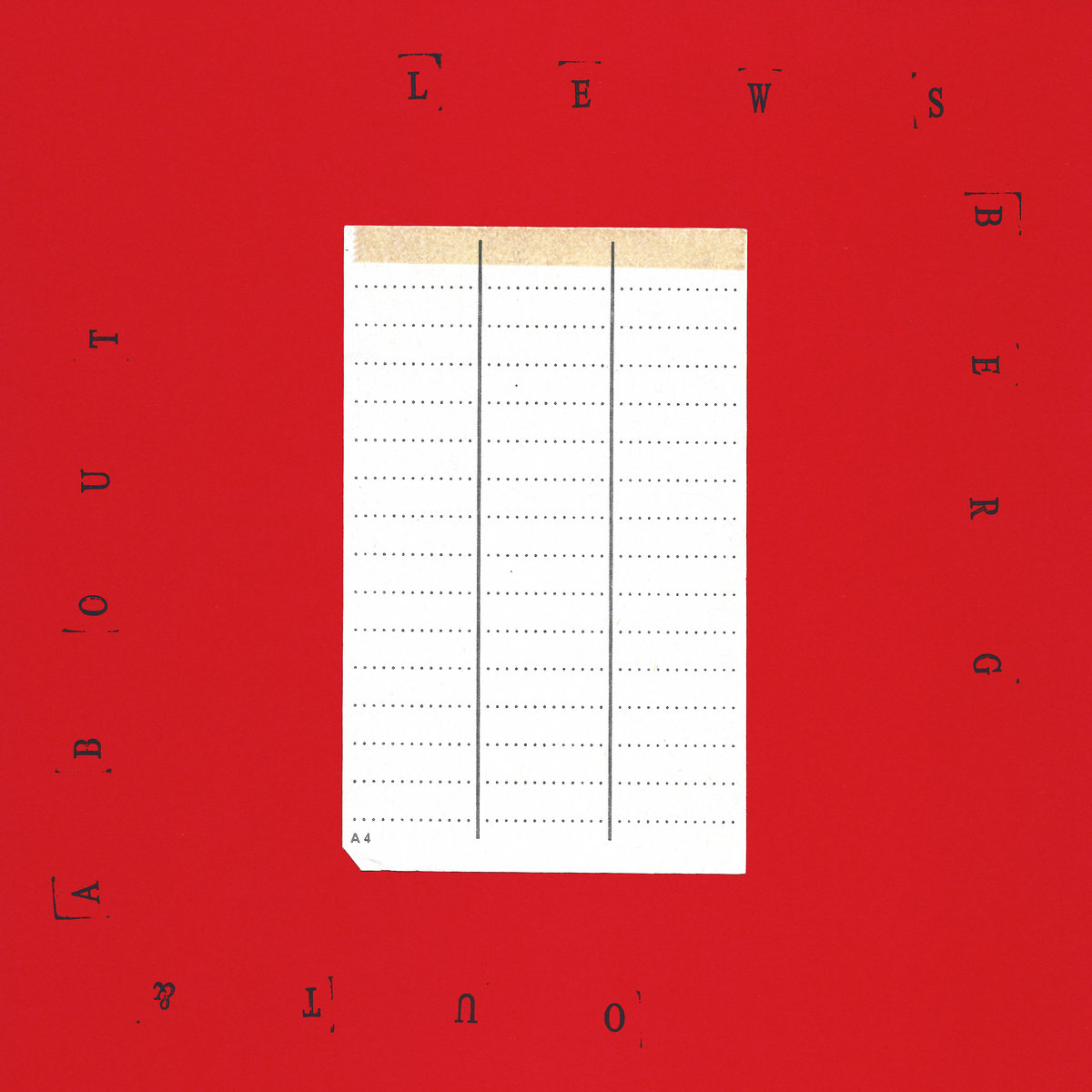
Lewsberg – Out and About

Sampha – Lahai (Young)
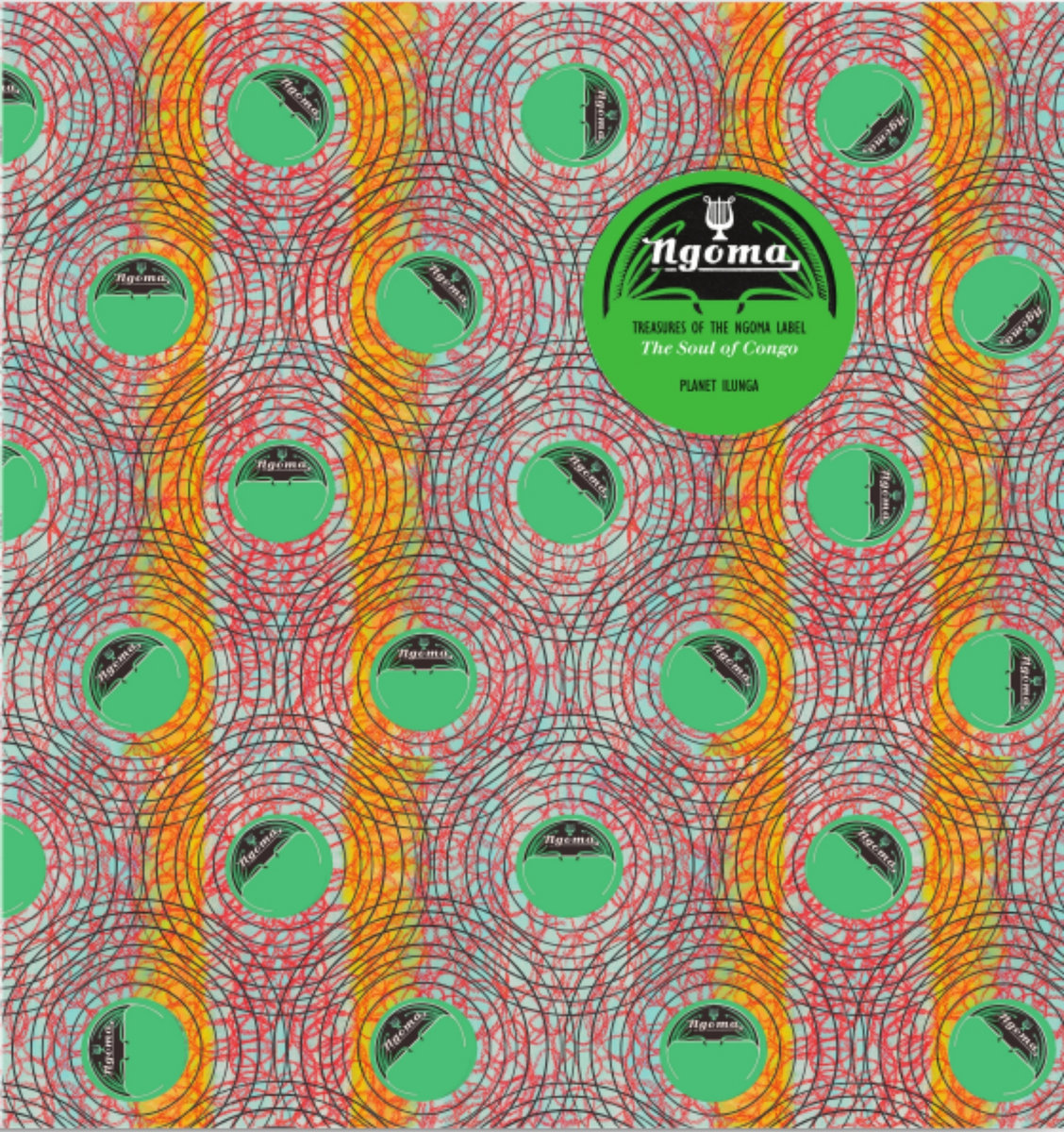
The Soul of Congo – Treasures of the Ngoma label (Planet Ilunga)
The Soul of Congo ist eine Zusammenstellung, die die Jahre von 1948 bis 1963 umspannt, als Belgisch-Kongo aus der kolonialen Unterjochung in die erste Blüte der Unabhängigkeit eintrat.
Die Hauptstadt Léopoldville wurde zu einem Hexenkessel des musikalischen Synkretismus zwischen afrikanischen Rhythmen und den europäischen, karibischen und kubanischen Melodien, die in der Großstadt beliebt waren. Die neuen Klänge wurden für eines der fünf großen kongolesischen Labels aufgenommen: Opika, Loningisa, Esengo, Olympia oder Ngoma. Keines der anderen kongolesischen Labels brachte die Energie, die Vielfalt und den Geist dieser Ära besser zum Ausdruck als das Ngoma-Label. Das Label wurde 1948 von dem Griechen Nicolas Jéronimidis gegründet. Während seines Bestehens, von 1948 bis 1971, machte Ngoma über 4500 Aufnahmen und schuf damit ein wichtiges kulturelles Erbe. Nun, da die Unesco die kongolesische Rumba ab Dezember 2021 zum immateriellen Kulturerbe der Menschheit erklärt hat, ist es nur angemessen, dass sie der Welt wieder zu Gehör gebracht wird.
Liebevoll gestaltete Kompilation aus 3 Lps und 35-seitigem Booklet.

F.S.K. (Freiwillige Selbstkontrolle) – Topsy-Turvy (Buback)
Das neue Album der Band greift in mancherlei Hinsicht auf Arbeitsweisen aus vergangenen Band-Perioden zurück. So gibt es, wie auf den ersten Alben, Streicher- und Bläser-Overdubs, die mitunter ins spätromantisch Orchestrale lappen, aber auch improvisatorischer Natur sind (Cello, vierhändiges Klavier, Trompete). Die acht Stücke wurden in dem von der befreundeten Band The Notwist zur Verfügung gestellten Alien Research Center in Live Takes produziert und von Mario Thaler gemischt.

Quartabê – Lição #2: Dorival (Fun In The Church)
Wenn Moacir in der brasilianischen Musikgeschichte als Komponist, Arrangeur und Dirigent sowie als Lehrer eine unbestreitbare Bedeutung hat, so ist Dorival Caymmi gleichzeitig Begründer, Förderer und Revolutionär der Tradition des brasilianischen Volksliedes.
Er schuf einen ebenso einfachen wie raffinierten Kompositionsstil, der von der Musik der Candomblé-Religion und den Nuancen der afro-brasilianischen Kultur, von der Figur des Fischers und seinem Universum, dem Meer – Elemente seiner bahianischen Herkunft – und später von dem in Rio de Janeiro, wo er einen großen Teil seines Lebens verbrachte, entwickelten urbanen Gesang beeinflusst wurde.
In „Lesson # 2: Dorival“ geht das Quartett Quartabê einen anderen Weg als bei den Neuinterpretationen seiner ersten beiden Alben. Ausgehend von Improvisationssitzungen, die auf harmonischen, melodischen und rhythmischen Fragmenten basieren, die während einer intensiven Studienzeit des Werks von Caymmi ausgewählt wurden, erreicht Quartabê ein einzigartiges musikalisches Werk, in dem Themen, Motive, Klangfarben und andere Elemente von Caymmis Musikuniversum miteinander verwoben sind. Seine Lieder stehen oft nicht im Vordergrund oder erscheinen nicht einmal vollständig: Sie wurden transformiert, erweitert, verdichtet und überlagert und bilden ein verwobenes Netz, in dem der Zuhörer nicht erkennt, wo die Arbeit des Autors endet und die des Interpreten beginnt. Indem Quartabê das Werk Dorivals in das Universum der Gruppe einbringt, versucht es, auf seine Weise die rituelle Aura dieser „Bootsarbeit“ neu zu erschaffen und sie in unbekannte Strömungen zu führen.
Quartabê sind:
Mariá Portugal
Drums, voice and coquinho
Joana Queiroz
Clarinet, bass clarinet and coquinho
Maria Beraldo
Clarinet, bass clarinet and coquinho
chicão
Keys, voice and coquinho


Theo Parrish – Cornbread & Cowrie Shells for Bertha (Sound Signature)
Die 2022 erschienene LP von Theo Parrish ist ein Mix aus ein paar kürzeren Stücken und zwei langen Nummern. Genre-mäßig bewegt er sich irgendwo zwischen House, Deep House und Acid Jazz. Highlight ist das 19-minütige Rhodes-lastige „Dance Alone“.

Pharoah Sanders – Pharoah (Luaka Bop)
Ein Deluxe 2-LP-Box-Set mit Prägedruck. Neben einer remasterten Version von PHAROAH, seinem bahnbrechenden Album von 1977, sind zwei bisher unveröffentlichte Live-Auftritte seines Meisterwerks „Harvest Time“ enthalten. Enthält ein 24-seitiges Booklet mit selten gesehenen Fotos sowie Interviews mit vielen der Beteiligten und ein Gespräch mit Pharoah selbst.

Slowdive – Everything is Alive (Dead Oceans)
Das fünfte Album der Shoegaze-Giganten Slowdive enthält die Dualität einer vertrauten inneren Sprache, gemischt mit der Exaltation des Neuanfangs. everything is alive ist transportierend, suchend und leuchtend, das Werk einer klassischen Band, die ihre unverwechselbare Stimme weiterhin in die Zukunft richtet. Sechs Jahre nach dem monumentalen, selbstbetitelten Album, finden Slowdive – die Sänger und Gitarristen Rachel Goswell und Neil Halstead, Gitarrist Christian Savill, Bassist Nick Chaplin und Schlagzeuger Simon Scott – auf „Everything is Alive“ immer mehr Konturen ihres eindringlichen, elementaren Sounds.

Jaimie Branch – Fly or Die Fly or Die Fly or Die ((world war)) (International Anthem)
Im Juli 2022, nur einen Monat bevor der Tod von Jaimie Branch die Welt erschütterte, befand sich die Trompeterin und Komponistin in den International Anthem Studios in Chicago, um einem Album den letzten Schliff zu geben. Es handelte sich um eine Reihe von Musikstücken, die sie komponiert und dann mit ihrem Vorzeigeensemble Fly or Die während eines Aufenthalts im Bemis Center for Contemporary Arts in Omaha, Nebraska, aufgenommen hatte. In ihrem Kielwasser war das Album fast fertig, es fehlten nur noch die Abmischung, die endgültigen Titel und das Artwork. In den folgenden Monaten taten sich ihre Familie (angeführt von ihrer Schwester Kate Branch), ihre Band (Jason Ajemian, Lester St. Louis und Chad Taylor) und ihre Mitarbeiter bei IARC zusammen, um Erinnerungen, Texte, E-Mails, Fotos, Kunstwerke und Fragmente von Jaimie zu sammeln und den Weg nach vorne zu beleuchten. Das Ziel war immer, das zu tun, was Jaimie getan hätte. Fly or Die Fly or Die Fly or Die ((world war)) ist Jaimies letztes Album mit ihrem Fly or Die-Quartett, verpackt in atemberaubende Artworks von John Herndon, Damon Locks und Branch selbst.

Shintaro Sakamoto – Like A Fable (Zelone Records)
Sechs Jahre nach seinem letzten Album Love If Possible hat Shintaro Sakamoto sein viertes Soloalbum Like A Fable fertiggestellt.
Die zehn Songs des Albums beschreiben das alltägliche Leben in einer Welt, die sich inmitten einer Pandemie dramatisch verändert. Sakamoto entwickelt seinen Sound kontinuierlich weiter und hat mit Like A Fable sein bisher bestes Pop-Album geschaffen.
Wie seine früheren Alben wurde auch Like A Fable mit den langjährigen Mitgliedern der Shintaro Sakamoto Band aufgenommen: Yuta Suganuma am Schlagzeug, AYA (OOIOO) am Bass und Backgroundgesang und Toru Nishiuchi am Saxophon und der Flöte.
KEN KEN (Ken2d Special, Urban Volcano Sounds) ist bei zwei Stücken als Gastmusiker an der Posaune zu hören.
Soichiro Nakamura hat das Album produziert und gemastert.

Images Of Goo – Images Of Goo (Un Je-Ne-Sais-Quoi)
Images Of Goo nennen die Münchner Soundbricolageure Leo Hopfinger aka LeRoy (Kopf von Das Hobos, H, Spiritual Emojis u.a.) und Cico Beck aka Joasihno (aktives Mitglied von The Notwist, Aloa Input, Spirit Fest u.a.) ihren ersten musikalischen Dialog im Albumformat.
Es ist gleichermaßen ein Dialog mit den Elementen ihres klanglichen Repertoires aus Echo-Variationen und Klangschatten aus dem perkussiven Instrumentenkasten. In der Summe eine Wunderkammer der Panaudik, der man sich in sechs Tracks pro Seite nähern und wieder entziehen kann.


Minhwi Lee – Borrowed Tongue (Alien Transistor)
Minhwi Lees erstes Soloalbum Borrowed Tongue wird im November 2016 als 12″-Vinyl und digital veröffentlicht. Die acht Tracks, die in sieben Jahren geschrieben und in zwei Jahren aufgenommen wurden, sind lose zu einer Erzählung verbunden. Lees Musik, die sich sowohl auf die musikalische als auch auf die lyrische Kraft stützt, stellt die Frage, ob eine sehr persönliche Geschichte zu der des Zuhörers werden kann, als Individuum und als eine Vielzahl.

Rogê – Curyman (Diamond West)
Einer der aufregendsten Singer-Songwriter der letzten fünfzehn Jahre aus Rio de Janeiro lebt jetzt in Los Angeles, wo er kurz vor dem überfälligen amerikanischen Durchbruch steht. Vor seinem Umzug war der für den Latin Grammy nominierte Rogê (sprich: haw-zheh) der Prinz von Lapa, dem belebten Zentrum des Nachtlebens von Rio. Charismatisch und ungepflegt, mit einer unverwechselbar rauen und doch jungenhaften Stimme, gewann Rogê, der als Roger José Cury geboren wurde, eine begeisterte Fangemeinde für seinen swingenden Samba-Funk, der von brasilianischem Soul geprägt ist. Sein Bekanntheitsgrad stieg, als er den Titelsong für die Olympischen Spiele 2016 in Brasilien mitschrieb.
Er hat sein erstes in den USA produziertes Album Curyman fertiggestellt, das am 2. Februar 2023 erschienen ist. Aufwendig produziert von Thomas Brenneck von der Budos Band, einem Topsession-Gitarristen und Kollaborateur mit den Stars (Lady Gaga, Beyoncé & Jay-Z, AmyWinehouse), wird Curyman das neue Label von Brenneck, Diamond West, einführen. Die erste Single, „Pra Vida“ (To Life), ist am 11. August 2022 erschienen. Dieser fröhliche, feierliche Samba „ist wie ein Schrei nach Erlösung und Widerstand, nach Resilienz“, sagt Rogê, „damit wir nicht der Traurigkeit, der Faulheit, dem mangelnden Willen, das Leben weiterzuführen, nachgeben. Es ist die Gewissheit, dass ein neuer Tag anbrechen wird.“

Malombo Jazz Makers – Down Lucky’s Way (Tapestry Works)
Erste Ausgabe seit 1969 des unbekannten dritten Albums des Malombo Jazz Makers, vollständig lizenziert von Julian Bahula, mit Linernotes und Interviews mit Julian Bahula und Lucky Ranku.
„Malombo-Musik ist eine indigene Musik. Wenn man ihr zuhört, spürt man, dass sie einen heilen kann, wenn etwas nicht in Ordnung ist. Es ist heilende Musik.“
Lucky Ranku
Lucas ‚Lucky‘ Madumetja Ranku (1941-2016) war einer der größten afrikanischen Gitarristen seiner Generation. Er machte sich zunächst mit den Malombo Jazz Makers einen Namen – der Nachfolgegruppe der legendären Malombo Jazzmen, die im Township Mamelodi von dem Gitarristen Philip Tabane, dem Schlagzeuger Julian Bahula und dem Flötisten Abbey Cindi gegründet wurde. Als Tabane 1965 die Jazzmen verließ, forderten Bahula und Cindi Lucky auf, ihn zu ersetzen, und die Malombo Jazz Makers waren geboren. Die Malombo Jazz Makers bauten auf der Popularität und dem Erfolg der ursprünglichen Malombo Jazzmen auf, wurden ungemein populär, tourten viel, gewannen zahlreiche Jazzwettbewerbe und nahmen zwei erfolgreiche Alben für das Gallo-Label auf.

Ahmed Ben Ali – Subhana (Habibi Funk)
Libyscher Reggae in seiner besten Form mit freundlicher Genehmigung des in Benghazi geborenen Ahmed Ben Ali. Nach der Zusammenarbeit mit Ahmed auf dem 12″-Hit „Subhana“ (Habibi012) meldet sich Habibi Funk mit einer Full-Length-Veröffentlichung zurück, die sich auf Ahmeds Veröffentlichungen aus der Mitte der 2000er Jahre konzentriert. Die Tracks auf der LP sind eine beeindruckende Sammlung schwerer Reggae-Rhythmen und synthetischer Grooves von einer einzigartigen kreativen Kraft, die sowohl von jamaikanischen Klängen als auch von libyschen folkloristischen Stilen inspiriert ist, wie Ahmed sagt: „Es ist der libysche Stil, nicht irgendein Bullshit.“

Namian Sidibe – Namian Sidibe (Sahel Sounds)
Die andere Seite der modernen malischen Loblieder: eine intime, akustische Session von Namian Sidibé. Namian gehört zu einer aufstrebenden Generation junger malischer Diven, die sich die sozialen Medien zunutze machen. Sie hat sich eine Fangemeinde aufgebaut und veröffentlicht Videos und Widmungen in Liedern, die von ihrem Cousin Jules Diabaté auf der akustischen Gitarre begleitet werden. Aufgenommen bei ihr zu Hause, mit kraftvollem und doch zurückhaltendem Gesang, der über einer melancholischen Akustikgitarre schwebt, erkundet Namian epische Generationslieder und Poesie, die in das Tik Tok-Zeitalter übertragen wurden.

The Ironsides – Changing Light (Colemine Records)
Die Ironsides sind da. Changing Light ist das erste abendfüllende Werk dieses meisterhaften Kollektivs von Musikern aus der Bay Area. Es verbindet klassische Psych-Soul-Klänge mit ausladenden Orchesterarrangements, die an den Soundtrack eines europäischen Films aus den 60er Jahren erinnern.
Inspiriert von den Soundtracks und der Library-Musik europäischer Komponisten der 60er und 70er Jahre, haben sich die Ironsides vorgenommen, eine Sammlung üppiger Songs zu schaffen, die ein breites Spektrum an Gefühlen, Emotionen und Erinnerungen hervorrufen.
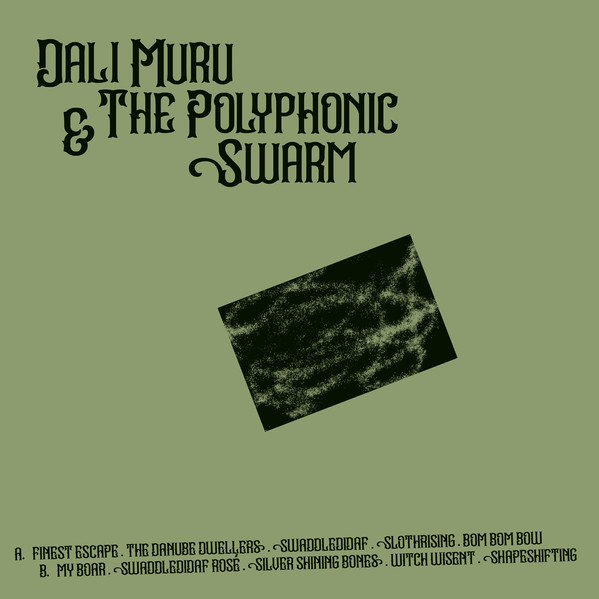
Dali Muru & the Polyphonic Swarm (Stroom)
„Wir haben zusammen eine Karte von der Reise gezeichnet. Eine grüne Linie von Bambi über die Donau bis zu den Karpaten. Ein in Technikfarben animiertes Märchen, das sich in Zeitlupe abspielt. Alle Protagonisten schwebten leicht über dem Boden. Der Soundtrack von Transkarpatien und ein wirbelndes, unaufgelöstes Summen. Eine körperlose Kamera fliegt durch einen Bartak-Wald; sie sinkt auf ein Nest aus wildem Beifuß…“

Art Ensemble of Chicago – Originale Du Film „Les Stances A Sophie“ (Play Loud!)
Am 28. Mai 1969 gingen vier amerikanische Musiker – die Bläser Roscoe Mitchell und Joseph Jarman, der Bassist Malachi Favors und (in Begleitung seiner Frau, der Sängerin Fontella Bass) der Trompeter Roscoe Mitchell – an Bord des Ozeandampfers S.S. United States mit dem Ziel Le Havre, Frankreich. Nach der Landung fünf Tage später fuhren sie weiter nach Paris, wo sie sich an die Arbeit machten.
Am 22. August 1970, in den letzten Tagen ihres Aufenthalts in Übersee, nahm die Gruppe, mit Bass am Gesang, ihre zweite Veröffentlichung für EMI’s Pathé Marconi auf: den Soundtrack zum Film Les Stances à Sophie.
Die Platte, eine aufregende, äußerst hörenswerte Kombination aus Soul, Klassik und Jazz, die als das stilistisch vielfältigste Album des Art Ensemble of Chicago gilt, wird seit langem von einer treuen Anhängerschaft bewundert. Seine Beständigkeit ist weitgehend auf die Popularität seines „Hits“ zurückzuführen: Im Laufe der Jahre wurde „Theme de Yoyo“ immer wieder gecovert, und zwar von so unterschiedlichen Künstlern wie der deutschen Funkband Boogoos (und dem Ableger Deep Jazz, beide mit der Sängerin Julia Fehenbeger), der britischen Nu-Jazz-Combo Cinematic Orchestra, dem polnischen Jazzer Wojtek Mazolewski, den norwegischen Rockern Motorpsycho, dem französischen Tanzmusikkünstler Étienne Jaumet und dem Londoner Remixer ™Shall I Bruk It.
Mehr als ein halbes Jahrhundert später sind „Theme de Yoyo“ und Les Stances à Sophie immer noch ein Hit.



